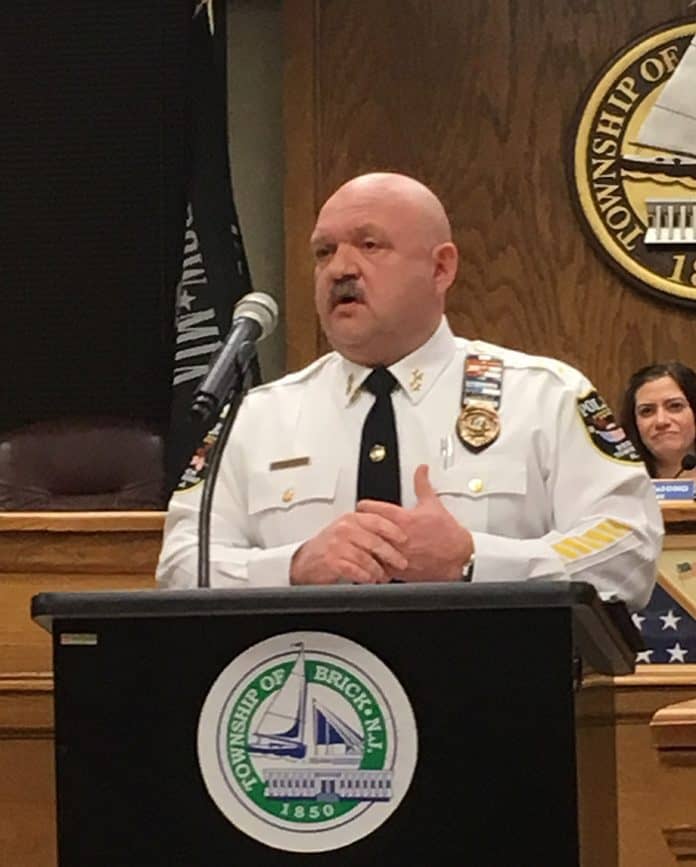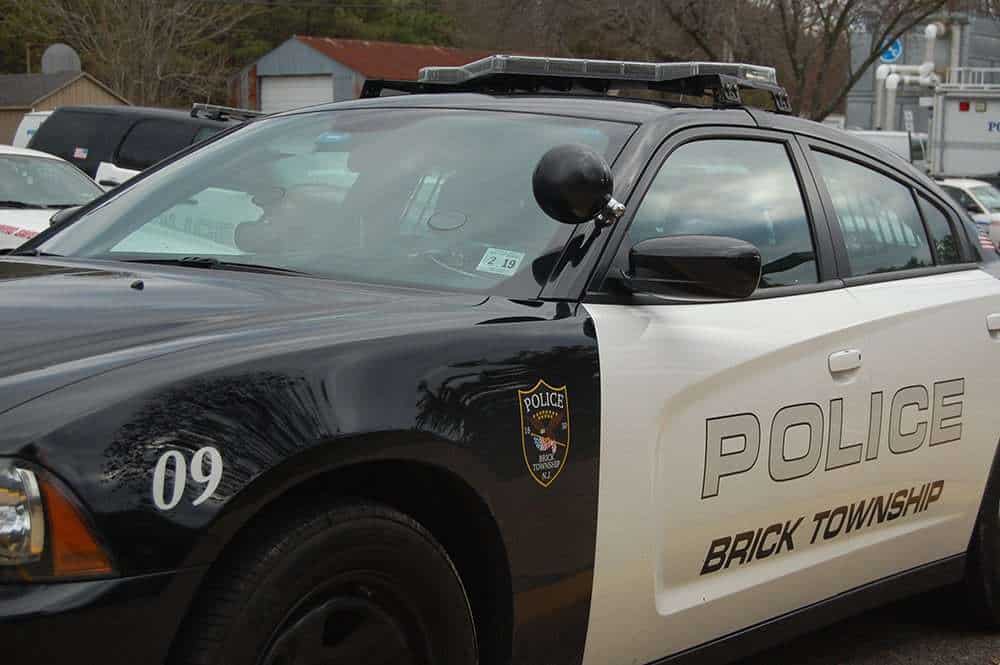
BRICK – On Feb. 15, the day after the Parkland, Florida school shooting that resulted in the death of 14 students and three staff members, Brick Police Chief James Riccio met with the acting superintendent of schools Dennis Filippone and police staff to look at how to improve school safety.
“Our department has always had a concern for the safety of our children and the security of our schools, so to that end, we have been doing a number of things already,” said Riccio during a presentation during a recent council meeting.
For example, all patrol officers can get into any school at any time without being buzzed in because they carry cards that allow them access, so police wouldn’t be hampered by the fact that the doors are locked, Riccio said.
Between the SROs (School Resource Officers), who are regular police officers stationed at each high school, and the drug education police officers, who teach classes from September until May and are in the schools for much of the day, there are always armed officers in the high schools, and sometimes in the middle schools, he said.
The SROs conduct regular safety drills with the teachers, including “what if” scenarios, teaching the staff how to react to different situations, Riccio said. Also, Brick police officers conduct annual active shooter drills where they confront different scenarios, including school shooter scenarios, using simunitions, or fake bullets – that hurt, he said.
The department follows up on all reports of suspicious activity, including visits to students’ homes by the SROs, if necessary, he said.
Brick police officers have always been equipped with high-power rifles, and Riccio said that in this year’s budget he wants to “buy even more. We want to make sure our officers are not out-gunned, and right now we are not.”
The police chief said he has noticed a common theme with school shootings across the country.
“They knew that kid was a potential problem, that he acted bizarre, and I think that’s where we’re missing the boat, even here,” he said.

To address that issue, Riccio recently contacted one of the two Brick Police Department psychologists to ask if there is a particular behavior police officers should be looking for.
Going forward, the psychologist would be training township police officers in the types of behaviors, who could then go back to the schools and train teachers, faculty and even students on what to look for.
“What are the signs? Are there certain types of behavior that should be triggering that somebody should be calling the police or be making a notification?” Riccio asked.
In these days of political correctness, where “bizarre behavior is the new normal,” people might be afraid to report individuals in fear of coming across as biased, he said.
Riccio said the police department is looking at software where teachers, faculty, students and the general public could anonymously report suspicious, or “out of the norm,” behavior, and the department would follow up.
“I realize that, especially when you’re dealing with kids, you might get bogus [reports] because they want to harass their friend…but I’d rather follow up on ten of them and find one that could be deterred,” he said.
There would be even more police presence at the schools since patrol officers will do at least two walkthroughs during their shift (until now they did one walkthrough per shift), and officers who write out reports on the side of the road or in parking lots would now do their writing in school parking lots, Riccio said.
In a follow-up meeting with Board of Education President Stephanie Wholrab, Riccio said they talked about the current retired police officers working in school security who are unarmed. “We talked about what they needed to do to have those officers armed,” he said.
Riccio said he would be asking the governing body to introduce an ordinance to allow the hiring of class 2 and class 3 armed police officers for school security.
He said that the committee recommends the hiring of a consultant to perform a security assessment for all schools, which would make recommendations on safety enhancement of school foyers and entrances.
Riccio said that a psychologist should be on a retainer for providing timely counseling for students who have been identified as needing counseling.
 The department is looking at software for teachers and students to report a threat to the police by using an app on their phone, which would show the police a map from where in the school they are reporting the threat.
The department is looking at software for teachers and students to report a threat to the police by using an app on their phone, which would show the police a map from where in the school they are reporting the threat.
The software has GPS with each school mapped out. Officers could access the information from their phone to see where other officers are located, where each classroom is, and allow them quicker access to the location if there was an incident in the school, Riccio said.
The police department is going to purchase software that would allow detectives to monitor social media.
“What they can do is put in certain keywords: ‘gun,’ ‘kill,’ ‘school,’ whatever, and they could do it by a geographical area, put in a name of a suspect, and it will monitor all their social media and alert them to a potential threat if it came up,” he said.
Riccio said that even with all the improved security, a threat could never be removed entirely as long as there is mental illness, weapons and victims.
“What we can do is do things to reduce the potential for you becoming a victim,” he said.
“But I don’t want anybody feeling that any one of these or all of these things can totally eliminate the possibility of a threat.”
The next council meeting will be on Tuesday, March 13 at 7 p.m.






